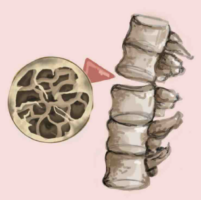Lay Summary by Daman Dhunna Edited by Rona Herzog This is a summary of a paper by ICORD researchers Vera-Ellen Lucci, Dr. Jessica Inskip, Maureen McGrath, Dr. Brian Kwon, Dr. Victoria Claydon, and their colleagues Dr. Ian Ruiz and Rebekah Read More…
Blog Archives: community
Factors influencing the size of activity spaces for people who use mobility devices
| 0 commentsLay Summary by Michael Limmena Edited by Rona Herzog This is a summary of research conducted by ICORD PIs Dr. Ben Mortenson and Dr. William Miller, and their colleagues Dr. Mike Prescott and Dr. François Routhier. Click here to access Read More…
Intermittent catheterization in wheelchair athletes with SCI
| 0 commentsLay Summary by Alanna Shwed Edited by Rona Herzog, Tiffany Fong, and Alyssa Chong This is a summary of research conducted by ICORD researchers Matthias Walter, Ian Ruiz, Jordan Squair, ICORD PI Dr. Andrei Krassioukov, and their colleagues Luis Rios Read More…

Osteoporosis after spinal cord injury
| 2 commentsInfographic by Crystal Han, inspired by SCIRE community page. Edited by Rona Herzog If you are interested in learning more, take a look at SCIRE Community’s page on Osteoporosis after SCI. Osteoporosis commonly affects individuals with SCI, primarily occurring below Read More…
Developing and testing an E-learning program to increase physical activity among people with SCI
| 0 commentsLay Summary by Matthew Ma Edited by Rona Herzog This is a summary of a research study by researchers at the University of Alabama. ICORD PI Dr. Kathleen Martin Ginis is a co-author. Click here to access the original paper. Read More…
How different variables affect wheelchair tipping probability
| 2 commentsThe tipping or falling of wheelchairs can cause an individual to sustain serious injuries, such as traumatic brain injuries, concussions, and bone fractures. The probability of wheelchair tipping can be heightened or reduced by a variety of factors and it is important that we understand these factors in order to increase wheelchair stability. Continue reading
How bowel, bladder, sexual dysfunction can affect health
| 1 commentWhat is bowel, bladder and sexual dysfunction? Persons with a spinal cord injury (SCI) can experience changes to their bladder, bowel, and sexual function secondary to the spinal cord damage. Problems can occur due to a lack of voluntary control over urination and defecation, possibly leading to complications like urinary tract infections. Continue reading
Exercise heart rate and physical activity after SCI
| 2 commentsWhy study physical activity and participation? High-level SCI can cause damage to nerves that regulate the cardiovascular system, making it hard for affected individuals to regulate their heart rate and blood pressure. As a consequence, blood pressure can be very low in people with high-level SCI, and their heart rates are often slow and fail to increase as they should during exercise. Continue reading
A phone-monitored upper limb home exercise program for post-stroke individuals
| 0 commentsPost stroke recovery– The ideal rehabilitation program: Up to 75% of stroke survivors have upper limb impairments that make everyday tasks like grasping a cup or utensil difficult. Many of these individuals become reluctant to use their affected limb in daily activities (called “learned non-use”). This can be detrimental to their long-term health, since reduced arm use has been associated with consequences such as decreased strength and bone density. Continue reading
The effects of personalizing assistive technology
| 4 commentsWhat is assistive technology? With today’s aging population, there is a significant increase in the number of older adults experiencing physical disabilities and limitations in mobility. Assistive technology (AT) can be very beneficial to these individuals in promoting participation in daily life. Continue reading

